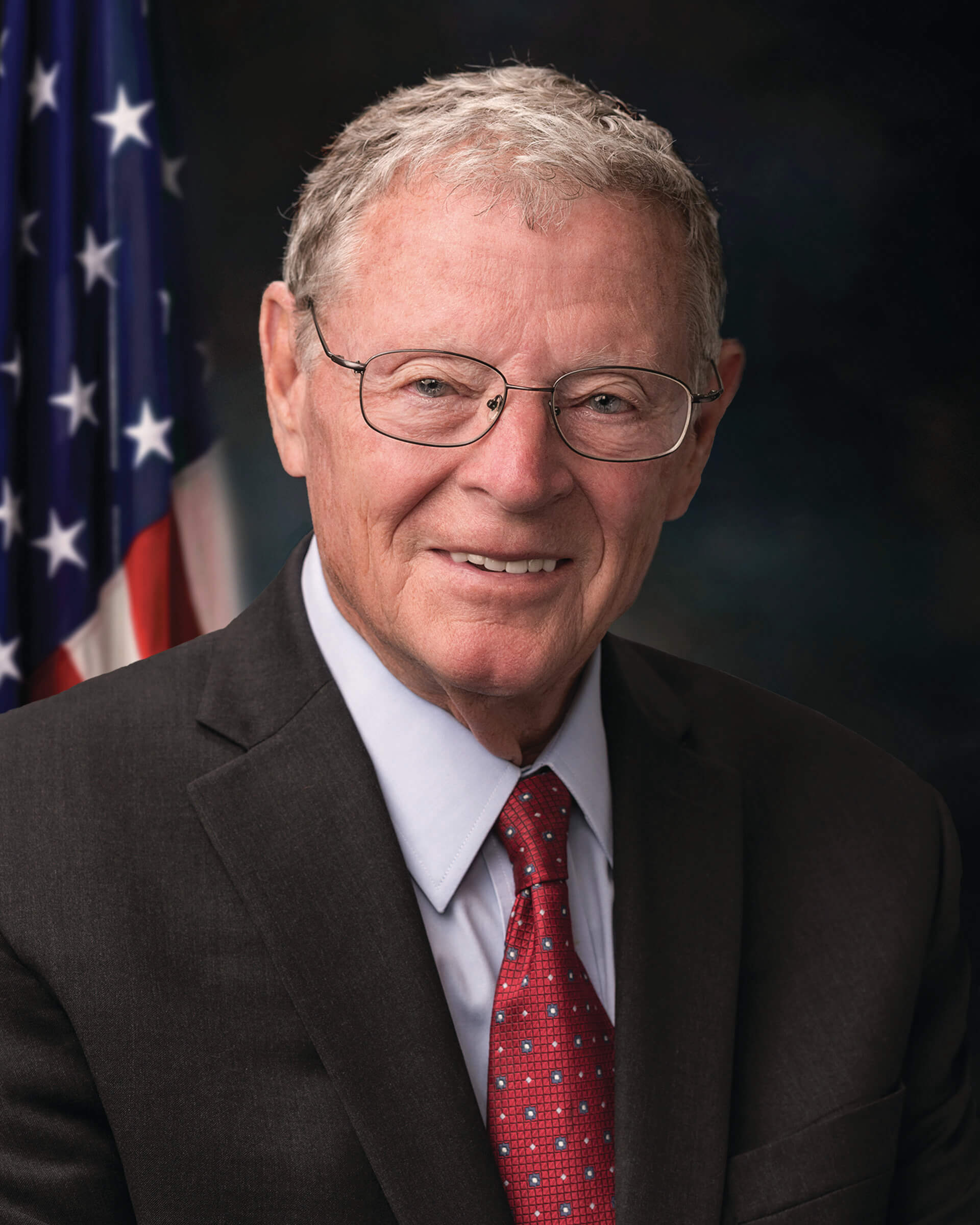
March 27, 2019

SEN. JIM INHOFE (R-OK) is a long-time resident of Tulsa, a pilot and certified flight instructor with more than 11,000 flight hours and an advocate for aviation professionals. Since coming to the U.S. Senate in 1994, he has been a leader on many general aviation issues. For example, as chairman of the Subcommittee on Transportation and Infrastructure of the Environment and Public Works Committee and a member of the Senate Committee on Commerce, Science, and Transportation, Inhofe supports infrastructure development because he believes one of the inherent roles of government is to provide infrastructure to enable access to transportation and fully connect the national economy. Prior to arriving in the U.S. Senate, Inhofe served in the U.S. House of Representatives, the Oklahoma House and Senate, and as mayor of Tulsa.
Q: The FAA Reauthorization Act of 2018 includes numerous provisions that you have long championed. What are the most important ones?
The FAA reauthorization bill is a win for general aviation, pilots and consumers. Besides providing long-term (five years) of FAA funding without a controversial proposal to privatize our nation’s air traffic control system, this legislation makes needed investments in our national airport infrastructure, supports the general aviation community, improves commercial airline service, streamlines the FAA’s regulatory processes, enhances aviation security and promotes the responsible and safe integration of drones in our national airspace.
As an active pilot, I’m especially pleased that many provisions I have fought for that promote transparency for pilots subject to FAA enforcement proceedings and support the rights of all pilots are being enacted, including reforms to the NOTAM program.
I also worked to ensure that this bill invests in the future of aviation by addressing the shortage of pilots, aviation technicians, and other professionals that support the aviation industry. My provisions create collaborative pilot education and aviation workforce initiatives to make a career in aviation accessible to young Americans everywhere.
I’d also include the enactment of the Volunteer Pilot Protection Act. Pilots are passionate volunteers – I see this at Oshkosh every year. I was proud to enact into law the Volunteer Pilot Protection Act of 2017, to help protect pilots who volunteer to fly individuals in need of medical treatment or for other charitable purposes. This Good Samaritan law for pilots is long overdue.
Q: Business aviation is facing a growing shortage of qualified talent. What legislative proposals have you offered to address this challenge?
Earlier I had proposed three separate aviation workforce related bills:
- The Securing and Revitalizing Aviation Act – This bill, which I introduced along with Sen. Tammy Duckworth (D-IL), was intended to authorize the Pilot Education Program, which was to focus competitive grants that would enable high schools to offer ground school courses, a first step for all who are pursuing aviation careers.
- The Aviation Maintenance Workforce Development Pilot Program Bill – This legislation, introduced with Senators Richard Blumenthal (D-CT), Jerry Moran (R-KS) and Maria Cantwell (D-WA), was designed to fund the Aviation Maintenance Workforce Development Program, which focuses competitive grants to support career and technical development of aircraft maintainers to address a severe shortage of maintenance professionals.
- The Modernize Training at Aviation Maintenance Technician Schools Bill –This legislation, which I introduced along with Orrin Hatch (R-UT), Maria Cantwell (D-WA) and Richard Blumenthal (D-CT), was drafted to direct the FAA to modernize the mandatory curriculum for aviation maintenance technician schools for the first time since the 1960s.
Fortunately, all of these provisions were included in the FAA Reauthorization Act of 2018.
Q: Ensuring the continuation of key FAA programs also has been one of your priorities. What have been the most notable?
As an avid pilot, I know first-hand the importance of key FAA programs. In May 2013, the FAA threatened to close 149 contract towers due to sequestration. Contract towers support general aviation safety, emergency medical operations, agriculture, law enforcement and military-related and national security operations. Since then, it has been my priority to secure full funding for con-tract towers.
Last year, Congress enacted my legislation to ensure that the FAA Aircraft Registry Office will remain open during a government shutdown. This office ensures the day-to-day operations of the aviation industry and is essential to our national security.
Finally, I have worked to maintain weather reporting professionals at airports across the nation. These observers provide accurate and timely weather forecasts, which is very important.


 International Business Aviation Council Ltd.
International Business Aviation Council Ltd.